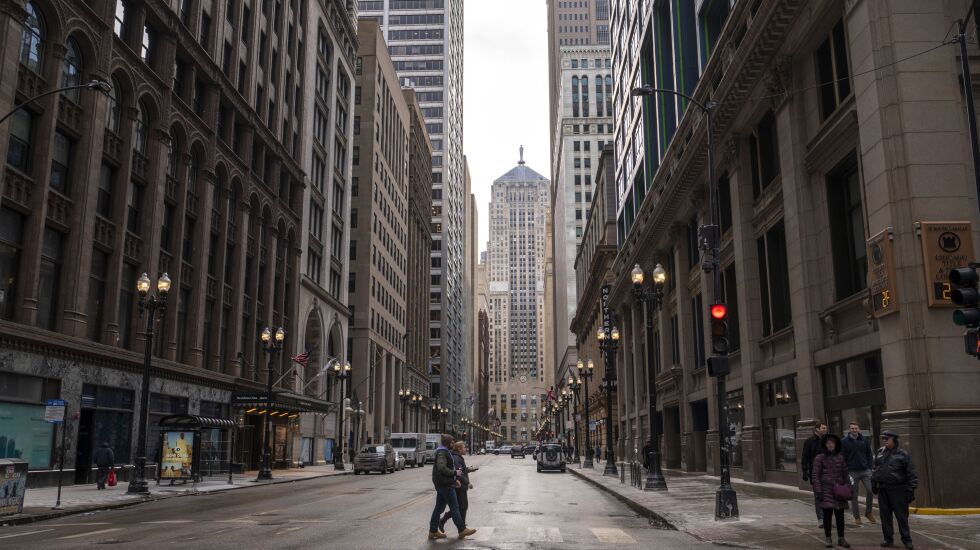
The viability of downtown will depend on the city’s ability to convert some of LaSalle Street’s historic commercial buildings into residential units.
It’s an expensive gambit, and downtown alderpersons this month have questioned Mayor Brandon Johnson’s ability to subsidize the plan, given his administration wants to help balance the city budget by using the millions from the same tax increment finance pot that have been promised to assist the LaSalle Street redevelopment.
For its part, the city says it can both balance the budget and fund LaSalle Street’s makeover, which calls for 30% of the new residential units to be affordable housing.
Either way, the bid to bring housing to the city’s financial district sounds like a perfect match for a multibillion-dollar initiative announced last week by the Biden administration.
Under the effort, the U.S. departments of Housing and Urban Development and Transportation, the General Services Administration and the Office of Management and Budget would encourage cities and states to turn empty office buildings — particularly ones near transit — into housing.
And the feds plan to provide over $35 billion in low-interest loans and other financial incentives to make it happen.
A city spokesperson Monday said the federal initiative “does make the case for adaptive re-use that the city has long been in front of.”
But for the sake of LaSalle Street, the Johnson administration must begin jockeying right now to take advantage of this program.
‘Win-win’ for cities
The federal plan, announced last Friday, is designed to take aim at the national affordable housing shortage and the glut of vacant office and commercial buildings brought about by the pandemic.
“The pandemic really changed the patterns of how many Americans live and work,” Transportation Secretary Pete Buttigieg said during the announcement, explaining the effort would help fund the creation of affordable housing near subway stops and bus terminals.
“Our intention is to make the most of this opportunity to add more housing near transit in ways that not only reduce the cost of housing but also reduce the cost of transportation,” Buttigieg said.
Chicago began rethinking LaSalle Street in 2022 as the district found itself rocked by a 36% vacancy rate caused by the pandemic and the fact that many of the district’s blue-chip financial institutions and law firms have moved to the new skyscrapers built along the Chicago River.
The “Reimagine LaSalle Street” initiative, which began under Mayor Lori Lightfoot, seeks to turn nearly 5 million square feet of vacant commercial space — enough to fill the Willis Tower — into a new mixed-use corridor of residential units, restaurants and street-level businesses.
Other cities such as San Francisco, New York, Los Angeles and Washington, D.C., face similar challenges and are looking to revamp downtown commercial space as well.
Deputy HUD Secretary Adrianne Todman last week said the new initiatives are designed to “really supercharge” the nation’s office-to-housing conversion efforts.
“This presents an area of opportunity to both increase housing supply while revitalizing main streets. It’s a win-win,” Lael Brainard, director of the National Economic Council told the Associated Press. “We’re utilizing resources from across the government.”
LaSalle street needs the lifeline
But the LaSalle Street turnaround is an undertaking that is as expensive as it is needed.
So far, three conversions within the district have been approved by the city: 208 S. La Salle St., 111 W. Monroe St. and 135 S. La Salle, which was the former home of Bank of America.
The total cost of the three projects is $550 million, with developers asking for $188 million in subsidies from the downtown TIF coffers.
With those kinds of numbers — and those are just for openers — LaSalle Street needs the lifeline Washington is offering. We hope the Johnson administration puts the city in a position to grab it.
Send letters to letters@suntimes.com







